Coding for tomorrow
We took coding on a road trip and made some discoveries.
The purpose of any great road trip is to discover and experience new things. Our journey so far is no exception. Our companion for this trip though might surprise you. It was coding. Not the usual choice for a road buddy but it has been a voyage of transformational discovery.
Coding is not a new skill, but it is a skill that is enjoying renewed interest. Defined simply as ‘writing instructions for computers’ - coding helps children solve problems, think critically and above all - unleash their creative muse.
The world of tomorrow will see children grappling with the promise of automation whilst evading the clutches of climate change. Having agency over machines, and being able to write programs to instruct our creations will become a key part of future-orientated citizenship. This is why coding and robotics need a higher profile in our schools.
No subject should be an island
Coding as a skill sits comfortably within the domain of computer science. In the UK, subjects tend to exist in silos within our education systems, insulating the knowledge that defines them. Liberating knowledge can yield transformational change. Recently, I have become fascinated by interdisciplinary learning as a way for children to make sense of the world around them. Interdisciplinary learning enables teachers and learners to make connections across learning through exploring clear and relevant links across the curriculum.
Coding for example allows children develop sequential logic skills, which shares an affiliation with mathematics where sequences and logic are part of the DNA of the subject. To code, you have to be resilient. There will be failures, often when you run the code and your instructions don’t work. I often think we insulate children from failure, when in truth it’s a part of life, particularly work. This disconnect between school and work seems to be widening. What employers want is not always what schools give them. Problem-solving, creative thinking and resilience are a key part of most jobs today - so we need to prepare our young people for this.
Coding can be an empowering skill for children of all ages. It offers benefits in terms of cognitive development, problem-solving, creativity, and preparing for future career opportunities. With the technology-driven world we live in today, learning to code is becoming an essential part of children's education, but it can be inaccessible, clunky and at times, dull. Not anymore - let me introduce you to Twin Science.
Twin Science are a sustainability-focused STEM education company who design challenges that bring coding into contact with climate change. They are making waves in education, driven by passion and a need to disrupt the robotics space. The team behind Twin Science believe that science and computational thinking is not only a matter of the brain, but also a matter of the heart. Behind every great idea lies a strong team and when it comes to Twin they have what it takes to making a difference. Connected by their love of coding, and a sense of stewardship towards the planet - they have created a suite of engaging classroom activities that we have been road testing at SAST schools.
Coding Roadshow
Since we built the future classroom, the demand for schools to visit has been huge. Transport and staffing present a barrier that stops many schools visiting us- so we came up with a solution - take the future classroom to them.
Working in collaboration with Twin Science, we took our future classroom (and some students) on a road show to visit local primary schools. Led by our Head of Computing Gil, we visit a different primary school every week to run sustainable coding workshops. Gil trained 8 students on how to use the robotics kits and they work as leaders during the workshops. Twin Science provide a number of fun challenges but the most popular seem to be the EV Car races and building solar farms. In the gallery below, you can see students building the EV cars and programming them ready for the races.


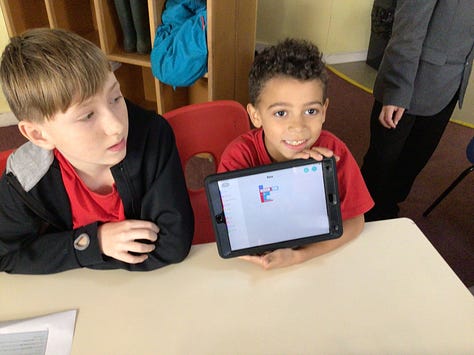

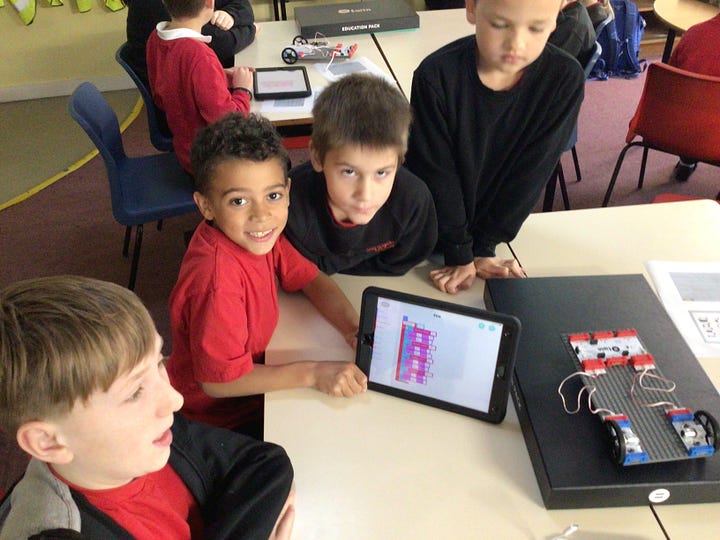
Many primary schools in the UK struggle to deliver high-quality coding and computing due to a lack of staff expertise and poor funding. This puts coding out of reach for many children from an early age which is a shame.
There is also a startling statistic that haunts the recruitment figures for GCSE and A Level computing. Girls are outnumbered, often opting to take other subjects rather than computing and physics. The figures don’t lie. In the UK, girls make up 20% of GCSE computing cohorts and only 10% of A-Level classes. In 2020, the number of girls choosing to study computer science GCSE was 16,919 – just over 21.4% of total entrants – compared with 61,540 boys. Slightly fewer girls and boys picked the subject compared with the previous year. Girls studying design and technology for GCSE fell from 29,741 in 2019 to 28,763 last year and sadly, the low numbers are reflected in job roles. The percentage of women employed in tech has barely moved from 15.7% in 2009 to approximately 17% today.
We need female role-models in tech
Representation in any context is key. People need to see themselves within the narrative. We know this is key to identity and have seen positive steps in UK schools to diversify curriculums. Providing girls with inspiring role models has never been more important. At Shaftesbury School our STEAM program is proudly 65% female and we are starting to see the ripple effect of this in lessons.
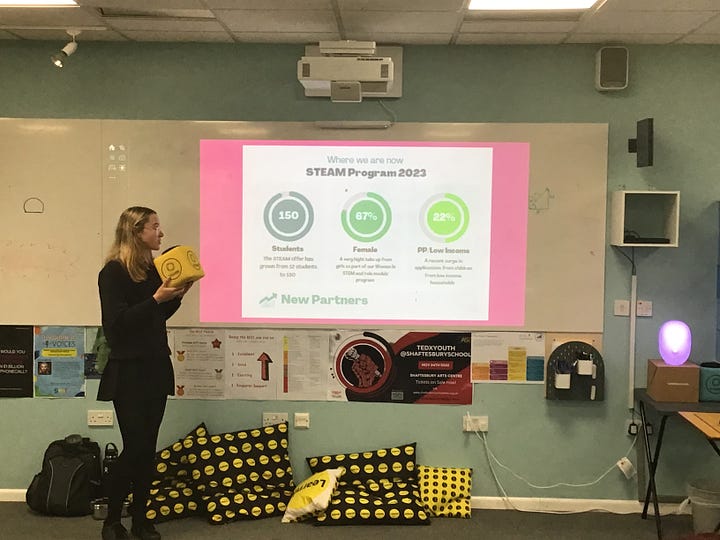
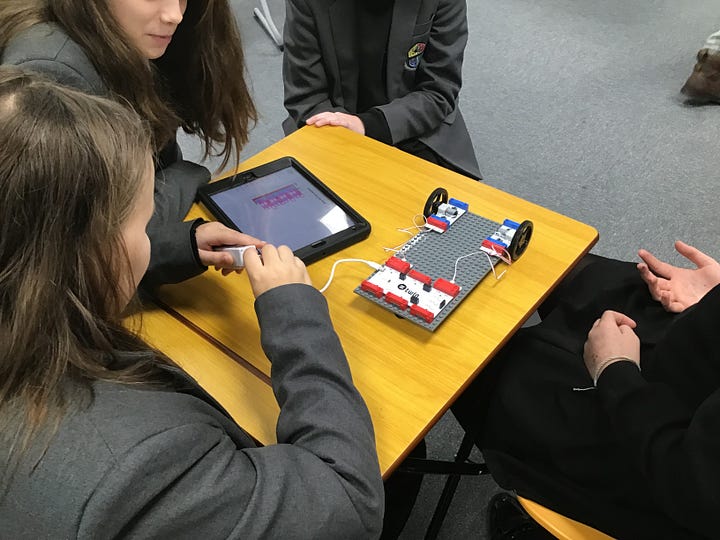
Empowering girls from a young age to seek our careers in the STEM-industry is good practice but it requires confidence-building and a platform to share their ideas. We have pioneered a few initiatives that are working to make our STEAM program inclusive, aspirational and highly engaging. I have listed these below as they are high impact initiatives that could be scaled out to any educational setting.
Offer more STEM opportunities to girls in school. This could be workshops led by external companies, trips to STEM organisations or access to careers events.
Run coding workshops in primary schools to empower all children. This removes the stigma from any early age that ‘coding is for boys’ and levels the playing field.
Bake coding and computational thinking into the fabric of our curriculums. Make it a conversation in educational arenas and school meeting agendas. No subject should be an island - yet we treat them as such.
Seek out powerful role models who are trial blazers in their industry and promote their story with children from a young age. We have achieved this through our ‘Inspiring Voices’ series that brings young people into contact with change makers and innovators.
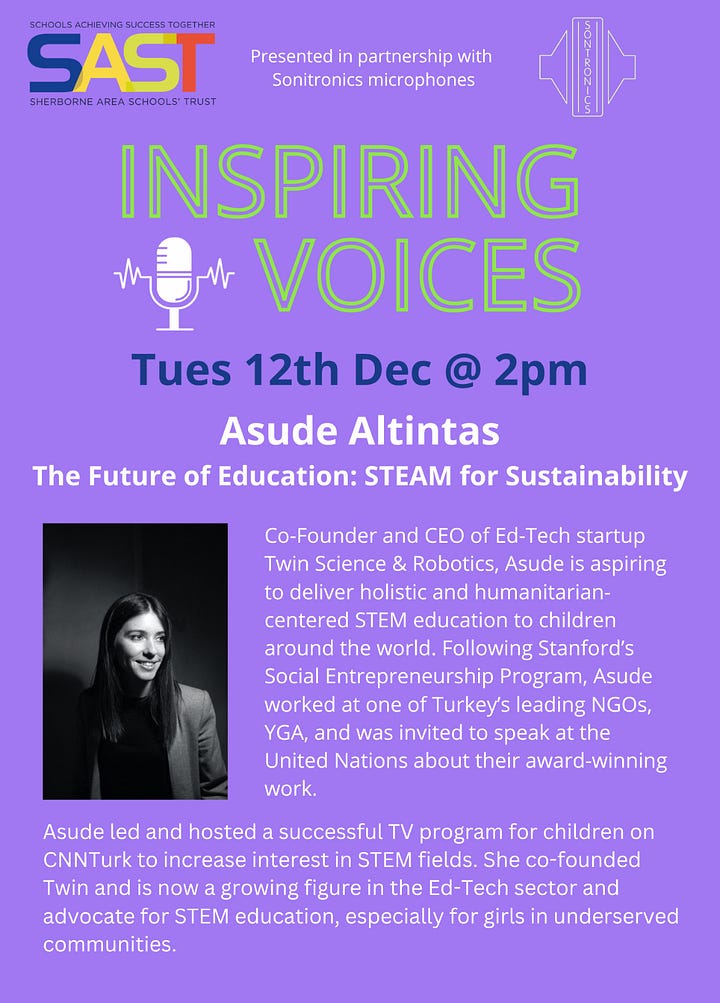



Circling back to Twin Science - this collaboration is gaining momentum. The response has been amazing and we are seeing the impact is real time. More children are engaging with coding, learning robotics and thinking sustainably. Girls are at the forefront of this - driving the innovation for a better tomorrow.
Thank you to Team Twin Science, you can connect with the team here: Twin Science
Thank you to Gil Sweetenham and Sarah Broughton for driving this innovation roadshow and to Chris Spackman and Peter Marks for supporting this collaboration.



